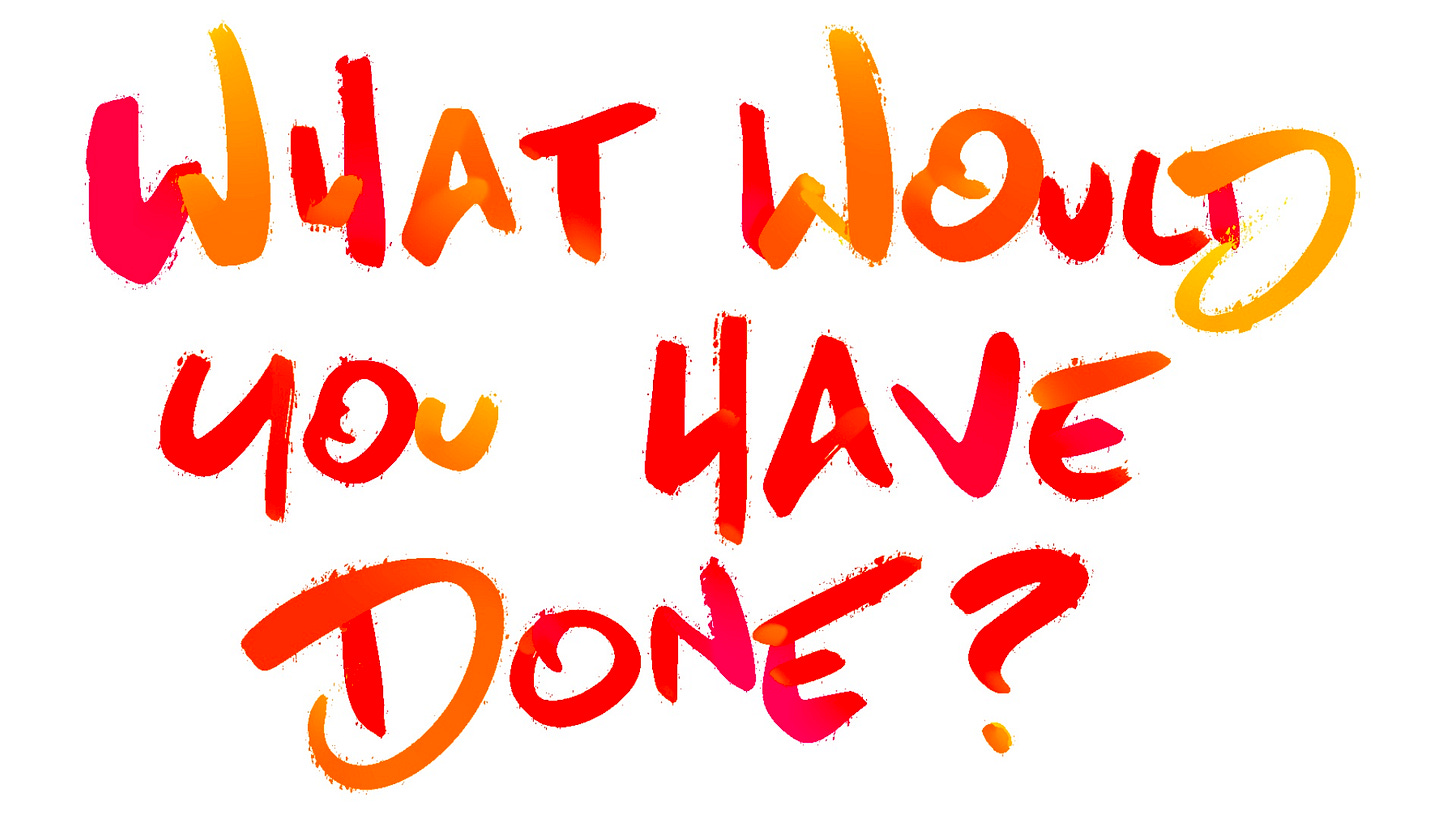What would you have done?
Monday morning quarterbacks, two-minute drills, and the gift of someone else's experience...
Monday Morning Quarterback—a person who passes judgement on and criticizes something after the event.
Armchair Quarterback—someone who doesn't participate in an action but still makes judgments about it.
These phrases usually carry negative connotations. Anyone can criticize something after its happened and when they haven’t participated in any of the action. It feels good to pass judgement from our thrones of comfort.
“Those that fail to learn from history are doomed to repeat it.”
Winston Churchill
The problem with these critical quarterbacks is that they don’t necessarily use the event as an opportunity for growth. We should definitely place ourselves in these situations and then determine personal strategies for how we would respond if we ever faced something similar. This will potentially save you significant time, heartache, and possible losses in the future.
Remember the Chris Rock and Will Smith incident?
Everyone had a hot take and chose a side. These quarterbacking conversations sounded something like this, “he should have never made that joke in the first place,” or “it was just a joke, he should never have slapped him,” or maybe, “she shouldn’t take things so personally.”
They were always about other people.
I didn’t see many critiques that sounded like this, “I want to make sure I have a thoughtful response in place if someone ever publicly criticizes my partner or spouse.” Or something like, “if I’m ever hit by someone, I want to make sure I always respond like this.”
Whether you are team Chris or Will doesn’t actually matter. What really matters is how the event prompts you to develop or alter your own strategies in case you face something similar.
There are events happening all around us and we have countless historical experiences we can revisit. So, what would you have done?
Take it or Leave it
Garbage in, garbage out. Like everything in life, the quality of your output will depend on the quality of your input. Anyone can throw together a hot take and jabber on about what they would have done. You’re better than that. You’re going to actually deconstruct the scenario, understand the nuances, look for a number of solutions, and then practice or vividly imagine yourself responding if something similar happens to you. This is what it means to learn from history.
Two-minute drills. Great sports coaches are constantly pulling from events that just happened and using them to inform their own strategy. In American football, the final two minutes of a game is an incredibly complex combination of elements. One of the most important elements is clock management. Coaches often begin running two-minute drills during the offseason because if one piece breaks down in the moment the entire puzzle falls apart. Often, coaches draw upon previous scenarios they’ve faced in order to craft the right drill to run. Down by nine points, on their own 30-yard line, outdoors, the run game hasn’t been working. By crafting strategic plays tailored to the specific needs of the moment based on what has or has not worked previously is time-intensive work but also incredibly valuable. One of the worst feelings is to lose at the end because you weren’t prepared.
The gift. Yes, you can definitely learn these things through your own experience as well. You can always ask the question of yourself about events you have experienced. But you are surrounded by an extensive network of experiences that you learn about through friends, family, colleagues, news, books, articles, documentaries, and more. Look around! What would you have done during WWII if a Jewish family turned up on your doorstep? What would you have done if terrorists had taken over your plane? What would you have done if your child got lost at Marina Bay for over an hour? (here’s what we did when it happened to us!) The experiences of others are one of the most precious gifts you can be given if you’re willing to dig deep and develop your own strategy as a result.
My Take
I teach early morning seminary for our high school age kids at church and they probably think I’m crazy because I am constantly encouraging them to place themselves into different people’s shoes to consider how they would feel and what actions they would take in all kinds of crazy scenarios.
I don’t think they will actually be called to lead a group of people through the wilderness for 40 years. But, I do think they will be in a leadership position someday where they struggle to keep everyone united in working toward a common goal. So yeah, drop yourself into the sandals of Moses and spend some time thinking about how you would have responded to the disobedience, dissent, and sometimes even destructive behavior as a leader of a large group.
And look, I’m not saying that your strategy will always work better than the one employed in the original moment of time. In life there is also an element of luck that we have to accept. But why would you leave certain things to chance if you had the study guide in front of you provided by someone else?



